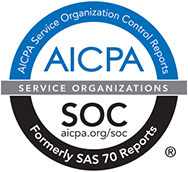What are Hierarchical Condition Codes (HCC)?
Hierarchical Condition Codes (HCC) were created by the Centers for Medicare & Medicaid Services (CMS). The HCC codes are used to identify 79 categories of conditions based on individuals with serious or chronic illnesses (such as diabetes or HIV/AIDS). Within each of the HCC categories are specific groupings of conditions drawn from more than 10,000 ICD-DM codes.
What is the purpose of HCC categories?
When combined with patient demographics, HCC categories are used to predict the future medical cost for each patient, based on their specific health issues. This information is much more accurate than the generic demographic information that was available previously.
When combined with demographic information, HCC categories are used by Medicare and Managed Care providers to determine risk and to allocate funds for the following year. It is also used by Accountable Care Organizations (ACOs) as a benchmark in shared savings.
How do HCC categories work?
There are more than 10,000 ICD-DM codes that identify a patient’s diagnosis. Each of these codes maps into one (or more) HCC category. Examples of the 79 HCC categories include:
- HIV/AIDS
- Colorectal, Bladder, and Other Cancers
- Disorders of Immunity
- Drug/Alcohol Dependence
- Schizophrenia
How do I determine HCC categories?
The process of applying ICD-DM codes to HCC categories is called Risk Adjustment Coding. This information is available from your insurance carriers, usually in a spreadsheet format. You can also find this information online at https://www.cms.gov/Medicare/Health-Plans/MedicareAdvtgSpecRateStats/Risk-Adjustors.html.
Who is responsible for HCC category coding?
This is ultimately the responsibility of the physician, who will capture ICD10 codes during encounters and submit the codes with their claims. Further developing the patient intake process and training staff to be mindful of the HCC categories will ensure an up to date problem list for each patient and assist the physician in documenting all conditions.
Why should you care about HCC category coding?
Like many other disciplines, medicine is becoming increasing influenced by data. Although risk adjustment coding is now primarily used to determine funding, its role will grow. In the future, documentation and coding will play an increased role in physician reimbursement. If you are in an ACO, correct risk adjustment coding can positively impact your revenue.
What happens if my HCC category codes are incorrect or incomplete?
Managed care providers can request and audit patient charts to make sure that the HCC category codes are correct. These audits may occur virtually or in your office. An audit requires attention and places an additional burden on your busy staff.
How can I make sure my HCC category codes are correct?
Insurance carriers typically offer training in how to properly apply HCC category codes. You can also work with a member of the American Association of Professional Coders, who are highly trained specialists in HCC category coding, billing and health care compliance.
About the Author
Nancy Rowe CPC, CPMA, CRC is the founder and president of Practice Providers Corporation. Her highly-trained staff provide personal and comprehensive medical practice management services – including Coding, clinical documentation training, risk adjustment management coding and managed hosting services. For more information, please call 1-800-959-6628 or email This email address is being protected from spambots. You need JavaScript enabled to view it..





